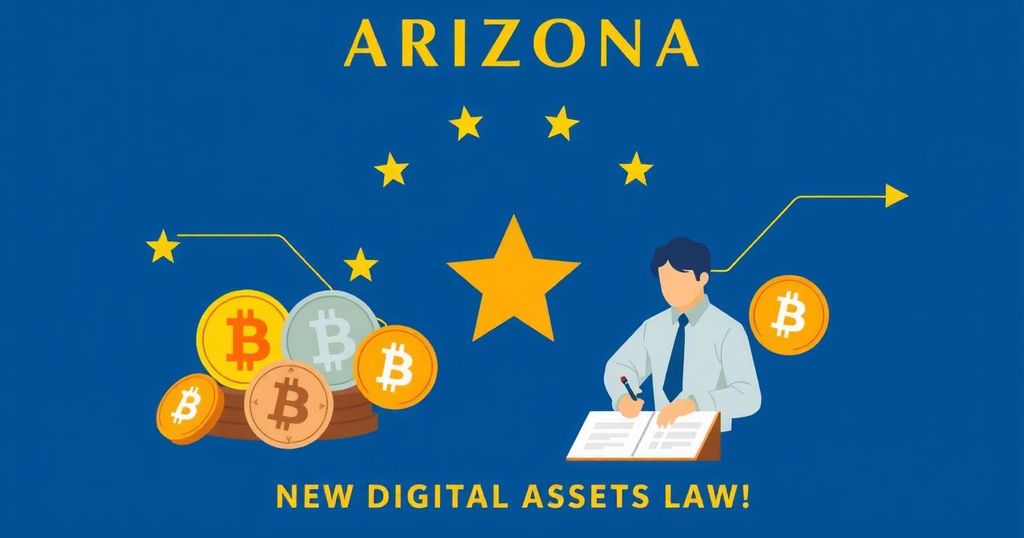Arizona Legislature Enacts Law for Unclaimed Digital Assets and Bitcoin Fund
Arizona has enacted House Bill 2749, allowing the state to claim abandoned digital assets after three years. The legislation establishes a Bitcoin reserve fund using funds from staking rewards. The bill follows New Hampshire’s similar initiative and aims to position Arizona as a leader in digital asset management, as Bitcoin prices rise in response.
Governor Katie Hobbs of Arizona officially signed House Bill 2749 into law last Wednesday, a move deemed significant for the state’s digital asset landscape. The new legislation allows Arizona to claim ownership of digital assets, like cryptocurrencies, that are considered abandoned after three years of no communication from the owner. Notably, Governor Hobbs made this decision after previously vetoing another bill related to cryptocurrency investments, signalling a cautious yet progressive approach to digital finance in the state.
This latest law has stirred excitement in the crypto community as it also lays the groundwork for a Bitcoin and Digital Asset Reserve Fund. This fund is expected to grow from staking rewards and airdrops, all while staying clear of taxpayer funding. In a press release, Chairman Weninger expressed optimism, stating, “Digital assets aren’t the future—they’re the present,” and emphasised the significance of Arizona taking action to manage these assets effectively.
Bitcoin’s market reaction seemed positive following the announcement. The cryptocurrency saw substantial gains, closing just above $98,500 after a climb from around $97,000 a day earlier. Supporters of the bill are hopeful that such legislative frameworks could elevate Arizona as a leader in the digital asset management sphere.
Further developments in the region include New Hampshire’s recent passage of House Bill 302, making it the first state to launch a Strategic Bitcoin Reserve. This law permits the allocation of up to 5% of public funds to Bitcoin and other digital assets. With Arizona now pursuing similar legislation, there’s a sense of momentum building in the U.S. that may influence other states like North Carolina and Texas to follow suit.
In addition to this, Arizona’s SB 1373 is awaiting approval from the governor. This proposed legislative measure would allow the state’s treasurer to dedicate up to 10% of the Budget Stabilization Fund to Bitcoin. If realised, it could pave the way for more states to explore the potential of digital currency in their financial strategies.
However, investment in digital assets is still fraught with risk. Officials stress the importance of thorough research before making financial decisions. As the landscape evolves, Arizona looks poised to play a crucial role in shaping how states handle unclaimed digital wealth as well as set a precedent for future legislation in the realm of cryptocurrencies.




Post Comment